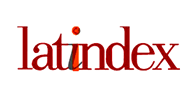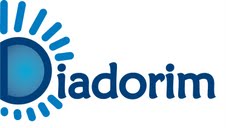CARE TRAJECTORY AS A METHODOLOGICAL STRATEGY IN TEACHING AND UNIVERSITY EXTENSION: EXPERIENCE REPORT
Care Trajectory as a Methodological Strategy
DOI:
https://doi.org/10.13037/ras.vol22.e20249656Keywords:
Teaching, Nursing Education, Health Learning System, Universities, Health CareAbstract
Introduction: Educating professionals engaged with their social reality is an institutional commitment. Objective: To describe the contributions of the adoption of the care trajectory as a methodological strategy for teaching and university extension, with a view to understanding the benefits of this approach in academic training. Method: Experience report with document analysis and reflective narrative review on the use of the care trajectory in teaching and university extension from the experience in a public university in the state of Mato Grosso, involving students, professors, and health professionals, in the period 2021-2023. Students and extension workers carried out home visits to collect care trajectories, following specific criteria and a structured script. The analysis was based on citizenship training and co-management. Results: The care trajectory is an innovative and effective methodological strategy for university teaching and extension in the field of health and its adoption promoted contextualized learning and the development of interdisciplinary skills. The practice enabled an in-depth understanding of the guidelines of the Unified Health System and the reality of users, facilitated the analysis of critical points in the health system and the formulation of interventions, reinforcing the need for co-management and interprofessional collaboration for the continuous improvement of access to health services. Conclusion: The care trajectory benefits teaching and university extension as a methodological strategy, contributed to contextualized learning, but for social transformation requires a critical and reflective approach through co-management.
Downloads
References
Brasil. Política Nacional de Educação Permanente em Saúde: o que se tem produzido para o seu fortalecimento? [Internet]. Ministério da Saúde. 2018 [citado 5 de junho de 2024]. Disponível em: https://conselho.saude.gov.br/images/publicacoes2023/politica_nacional_educacao_permanente_saude_fortalecimento.pdf
Chiarello IS. A universidade e seu papel no desenvolvimento regional: Contribuições do Proesde. Rev. Ext. em Foco [Internet]. 29º de outubro de 2015 [citado 9º de junho de 2024];1(2):240-57. Disponível em: https://periodicos.uniarp.edu.br/index.php/extensao/article/view/795
Santana RR, Santana CC de AP, Costa Neto SB da, Oliveira ÊC de. Extensão Universitária como Prática Educativa na Promoção da Saúde. Educ Real [Internet]. 2021;46(2). Disponível em: http://dx.doi.org/10.1590/2175-623698702
Rosa OM, Teo CRPA, Mattia BJ. Educação interprofissional e extensão universitária: conexões, conceitos-chave e diretrizes para a educação superior em saúde. Educ Teor Prát [Internet]. 2023;34(67). Disponível em: http://dx.doi.org/10.18675/1981-8106.v34.n.67.s17718
Brito HR do NG, Alves ED, Cruz ERM, Carneiro SV, Bezerra M de HO, Carvalho MMB, Câmara CMF, Vidal AA, Carneiro SNV. Extensão universitária e ensino em saúde: impactos na formação discente e na comunidade / University extension and health education: impacts on student education and on the community. Braz. J. Develop. [Internet]. 2021 Mar. 24 [cited 2024 Jun. 9];7(3):29895-918. Available from: https://ojs.brazilianjournals.com.br/ojs/index.php/BRJD/article/view/26939
Cabral ALLV, Martinez-Hemáez A, Andrade EIG, Cherchiglia ML. Itinerários terapêuticos: o estado da arte da produção científica no Brasil. Cien Saude Colet [Internet]. 2011;16(11):4433–42. Disponível em: http://dx.doi.org/10.1590/s1413-81232011001200016
Mussi RF de F, Flores FF, Almeida CB de. Pressupostos para a elaboração de relato de experiência como conhecimento científico. Práx Educ [Internet]. 2021;17(48):1–18. Disponível em: http://dx.doi.org/10.22481/praxisedu.v17i48.9010
Cechinel A, Pereira Fontana SA, Pazeto Della Giustina K, Serafim Pereira A, Salvador do Prado S. Estudo/análise documental: uma revisão teórica e metodológica. Criar Educ [Internet]. 2016;5(1). Disponível em: http://dx.doi.org/10.18616/ce.v5i1.2446
Fórum de Pró-Reitores das Instituições Públicas de Educação Superior Brasileiras. Política Nacional de Extensão Universitária [Internet]. Ufsc.br. 2012 [citado 5 de junho de 2024]. Disponível em: https://proex.ufsc.br/files/2016/04/Pol%C3%ADtica-Nacional-de-Extens%C3%A3o-Universit%C3%A1ria-e-book.pdf
Vendruscolo C, Ferraz F, Trindade L de L, Khalaf DK, Kleba ME, Prado ML do. Health teaching-service integration: possible dialogues from collective co-management. Esc Anna Nery [Internet]. 2018;22(4). Disponível em: http://dx.doi.org/10.1590/2177-9465-ean-2018-0237
Gabriel RSN. Morin, E. (2000). Os sete saberes necessários à educação do futuro. 2a ed., São Paulo: Cortez, Brasília, DF: UNESCO, 2000. Constr Psicopedag [Internet]. 2020;28(29):97–97. Disponível em: http://dx.doi.org/10.37388/cp2020/v28n29a01
Biscarde DG dos S, Pereira-Santos M, Silva LB. Formação em saúde, extensão universitária e Sistema Único de Saúde (SUS): conexões necessárias entre conhecimento e intervenção centradas na realidade e repercussões no processo formativo. Interface [Internet]. 2014;18(48):177–86. Disponível em: http://dx.doi.org/10.1590/1807-57622013.0586
Lages FS, Dias DR, Avelar EA. Gestão em um projeto de extensão universitária: uma abordagem multimeios. Rev Gest Secr [Internet]. 2024;15(2). Disponível em: http://dx.doi.org/10.7769/gesec.v15i2.3525
Festas MIF. A aprendizagem contextualizada: análise dos seus fundamentos e práticas pedagógicas. Educ Pesqui [Internet]. 2015;41(3):713–27. Disponível em: http://dx.doi.org/10.1590/s1517-9702201507128518
Land S, Jonassen D, organizadores. Theoretical foundations of learning environments. Routledge; 2012.
Brown JS, Collins A, Duguid P. Situated cognition and the culture of learning [Internet]. Johnseelybrown.com. [citado 5 de junho de 2024]. Disponível em: https://www.johnseelybrown.com/Situated%20Cognition%20and%20the%20culture%20of%20learning.pdf
Oliveira CVNC, Tosta MCR, Freitas RR. Curricularização da extensão universitária: uma análise bibliométrica [Internet]. Ufes.br. [citado 5 de junho de 2024]. Disponível em: https://periodicos.ufes.br/bjpe/article/view/30835/21170
Vendramini P, Feuerschütte SG, da Silva KV, de Oliveira BC. O fortalecimento da extensão universitária por meio da construção de parcerias:: o caso do Programa de Extensão Assessorem. enepcp [Internet]. 2023 [citado 5 de junho de 2024]; Disponível em: https://anepecp.org/ojs/index.php/br/article/view/473
Cardoso AC, Corralo DJ, Krahl M, Alves LP. O estimulo à prática da interdisciplinaridade e do multiprofissionalismo: a Extensão Universitária como uma estratégia para a educação interprofissional. Rev ABENO [Internet]. 2015;15(2):12–9. Disponível em: http://dx.doi.org/10.30979/rev.abeno.v15i2.93
Rocha SP, Ponte Neto OA da, Farias QLT, Maciel GP, Silva ÍAB, Sousa JIT de, et al. A curricularização da extensão na graduação em saúde: a experiência de um curso de enfermagem. Saúde em Redes [Internet]. 2019;5(3):275–83. Disponível em: http://dx.doi.org/10.18310/2446-4813.2019v5n3p275-283
Dantas M, Guenther M. A contribuição da extensão universitária na promoção do desenvolvimento local. Rev Bras Gest Desenvolv Reg [Internet]. 2024;20(1). Disponível em: http://dx.doi.org/10.54399/rbgdr.v20i1.6728
Sousa CC de. Cogestão: a experiência alemã como fonte de perspectivas para o Brasil. Universidade de Sao Paulo, Agencia USP de Gestao da Informacao Academica (AGUIA); 2021.
Franco M S. Movimentando-se no contexto da extensão universitária a partir dos princípios da autogestão. [Internet]. Unesp.br. [citado 6 de junho de 2024]. Disponível em: https://repositorio.unesp.br/server/api/core/bitstreams/28c3c9f4-8d99-4342-a3c2-60f5af6b1d0a/content
Vieira M. Saúde Paidéia. Trab Educ Saúde [Internet]. 2004;2(1):210–1. Disponível em: http://dx.doi.org/10.1590/s1981-77462004000100015
Ceccim RB, Feuerwerker LCM. O quadrilátero da formação para a área da saúde: ensino, gestão, atenção e controle social. Physis [Internet]. 2004;14(1):41–65. Disponível em: http://dx.doi.org/10.1590/s0103-73312004000100004
D’Amour D, Ferrada-Videla M, San Martin Rodriguez L, Beaulieu M-D. The conceptual basis for interprofessional collaboration: Core concepts and theoretical frameworks. J Interprof Care [Internet]. 2005;19(sup1):116–31. Disponível em: http://dx.doi.org/10.1080/13561820500082529
Downloads
Published
Issue
Section
License
Copyright (c) 2024 Josué Souza Gleriano, Monylla Gomes Ludwig, Whagda Keren Alves Rodrigues, Vinícius de Oliveira Barbosa, Hellen Gomes Santanna Dantas, Dienefer Jaqueline Feix Rodriques

This work is licensed under a Creative Commons Attribution-NonCommercial-NoDerivatives 4.0 International License.
Policy Proposal for Journals offering Free Delayed Access
Authors who publish in this magazine agree to the following terms:
- Authors maintain the copyright and grant the journal the right to the first publication, with the work simultaneously licensed under a Creative Commons Attribution License after publication, allowing the sharing of the work with recognition of the authorship of the work and initial publication in this journal.
- Authors are authorized to assume additional contracts separately, for non-exclusive distribution of the version of the work published in this magazine (eg, publishing in institutional repository or as a book chapter), with the acknowledgment of the authorship and initial publication in this journal.
- Authors are allowed and encouraged to publish and distribute their work online (eg in institutional repositories or on their personal page) at any point before or during the editorial process, as this can generate productive changes, as well as increase impact and citation of the published work (See The Effect of Open Access).









